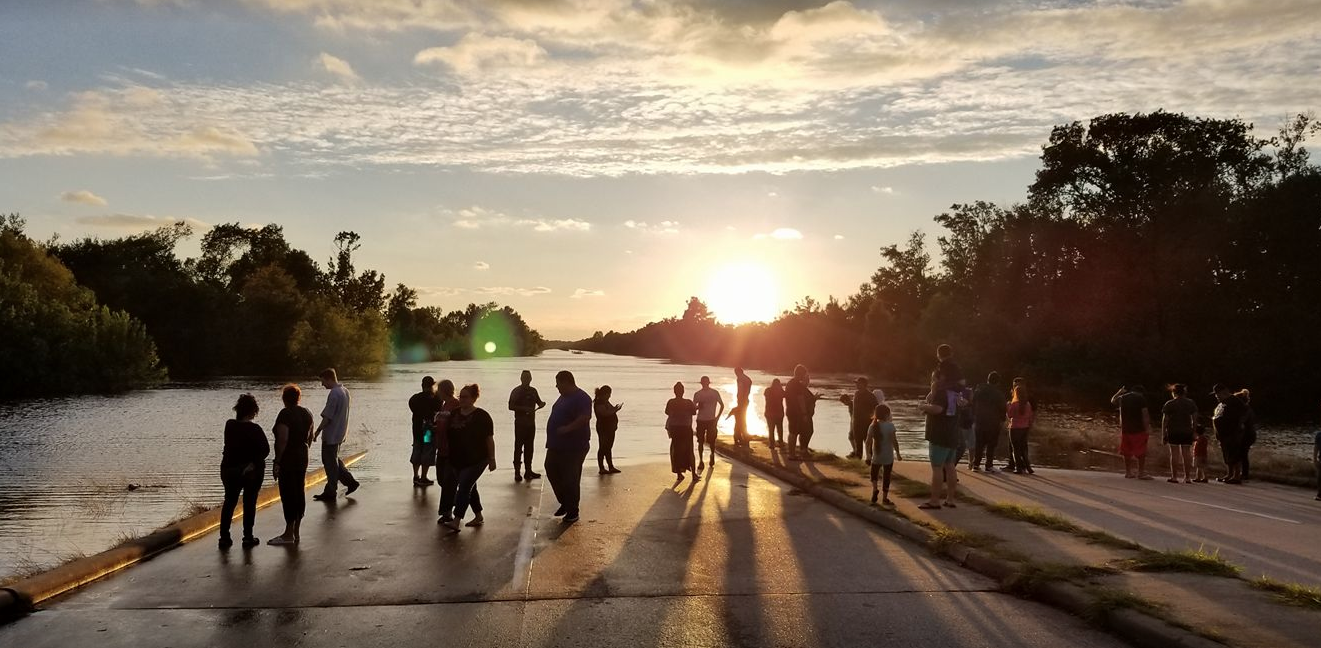
Even though the flood waters have receded and rebuilding has begun, Hurricane Harvey’s impact across the region will continue to be felt for years. That’s why EHF is working with the Episcopal Diocese of Texas (EDOT) and Episcopal Relief and Development (ERD) to help churches and communities recover from the storm.
”This is the beginning of a focused, comprehensive effort to restore all of our communities to wholeness,” said the Rev. Russ Oechsel, diocesan disaster relief director.
Even prior to Harvey’s landfall, Rev. Oechsel and ERD began coordinating a robust long-term response. After the storm, EHF joined EDOT leadership and ERD representatives as they visited impacted areas in Houston and along the Texas Gulf Coast. From church to church, people told similar stories of exhaustion, emotion and love for their neighbors.
At Trinity Episcopal Church in Baytown, faithful testimony was present in the stories of volunteer-driven water rescues and feeding and housing of evacuees, relief workers and first responders. Holy Trinity Episcopal in Dickinson responded to the flooded-out congregation of Faith Lutheran by sharing Sunday morning worship in their building and alternating Episcopal and Lutheran liturgies each week. The church also become home for M.I. Lewis, an assistance nonprofit that lost their building, freezers and pantry to the flood.
St. Stephen’s in Beaumont converted its Parish Hall into a relief center. The congregation staffed the center and collected donated supplies from across the US to meet the immediate needs of the community. Bottled water became a necessary commodity because power outages caused the city water supply to be unsafe for drinking.
These stories are just a few examples of many congregations across the diocese being uniquely responsive, stretching to meet the immediate needs of their community.
EHF’s work with congregations won’t change. Instead, we’ll continue our work with an added ability to apply a “Harvey lens” to this important work. For example, EHF’s congregational engagement team has already scheduled additional Mental Health First Aid training sessions to equip church and community leaders along the gulf coast region. Data shows that 50% of people in a mental health crisis will reach out to a church as their first contact for assistance. Mental health concerns have been a priority concern in all our visits in regions affected by Harvey.
The neighbor-to-neighbor approach taken by congregations after the storm reflects the mission mindedness of the diocese that goes beyond only providing charity “handouts”. Instead, its an approach to becoming a partner and helping hand walking with neighbors for the long journey to restoration and wholeness. It is this kind of asset-based community partnering for restoration that can transform a neighborhood from devastation to healthy community.